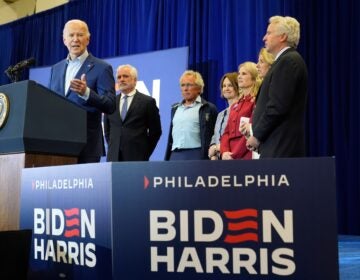What alternatives did Obama have to the debt deal?
I think of myself as a conflict-avoider. So I can sympathize with President Obama’s desire to make a deal on the debt ceiling and avoid an angry confrontation with Republicans. But it wasn’t much of a deal.
The main accomplishment was kicking the can far enough down the road so that we won’t have to repeat the same fight over raising the debt ceiling again until after next year’s election. So the next fight won’t come during President Obama’s re-election campaign when he won’t want to be discussing the increasing national debt and continuing deficit spending.
But in exchange he had to throw Medicare and domestic spending programs under the bus, without any sacrifice from our highest income citizens and corporations. There was agreement only on the first trillion dollars of spending cuts. Then the President had to agree that if the 12 wise members appointed by congressional leaders are unable to find an additional trillion and a half dollars in cuts by this November, automatic spending cuts will kick in.
The incentive to get the Republicans to negotiate is supposed to be that defense and national security spending will also be subject to automatic cuts in the absence of an agreement, and Republicans supposedly are very attached to such spending. But many tea party activists agree with presidential candidate Ron Paul that defense and national security spending ought to be cut by withdrawing American forces from foreign countries and limiting their function to defense of the homeland. Those folks will be happy to see automatic spending cuts take effect in the absence of an agreement.
Did President Obama have any alternative given Republican control of the House of Representatives and the power to block legislation in the Senate? I think he did, but angry confrontation with Republicans would then be unavoidable.
First, he could have asserted presidential power to unilaterally raise the debt ceiling, either under the 14th Amendment’s language that the public debt shall not be questioned, or under Article II’s statement that executive power is vested in the President. Imagine what the Republican reaction to that would be!
No doubt they would try to enjoin the President’s power to unilaterally raise the debt ceiling. But I doubt that any federal court would entertain any such complaint. Courts do not want to be put in the position of deciding political questions between the legislative and executive branches. The President’s executive power would be sustained.
Alternatively, President Obama could have followed Michele Bachmann’s suggestion that he simply prioritize spending within the existing $14.3 trillion dollar debt ceiling without any increase. He could then have asserted executive power to allocate all the necessary spending cuts to defense, national security, and Republican earmarks. Again, there would be a hysterical reaction from Republicans, a failed lawsuit, and probably an impeachment, which would fail in the Senate.
But it’s clear now that we have a conflict-avoider in the White House.
WHYY is your source for fact-based, in-depth journalism and information. As a nonprofit organization, we rely on financial support from readers like you. Please give today.




